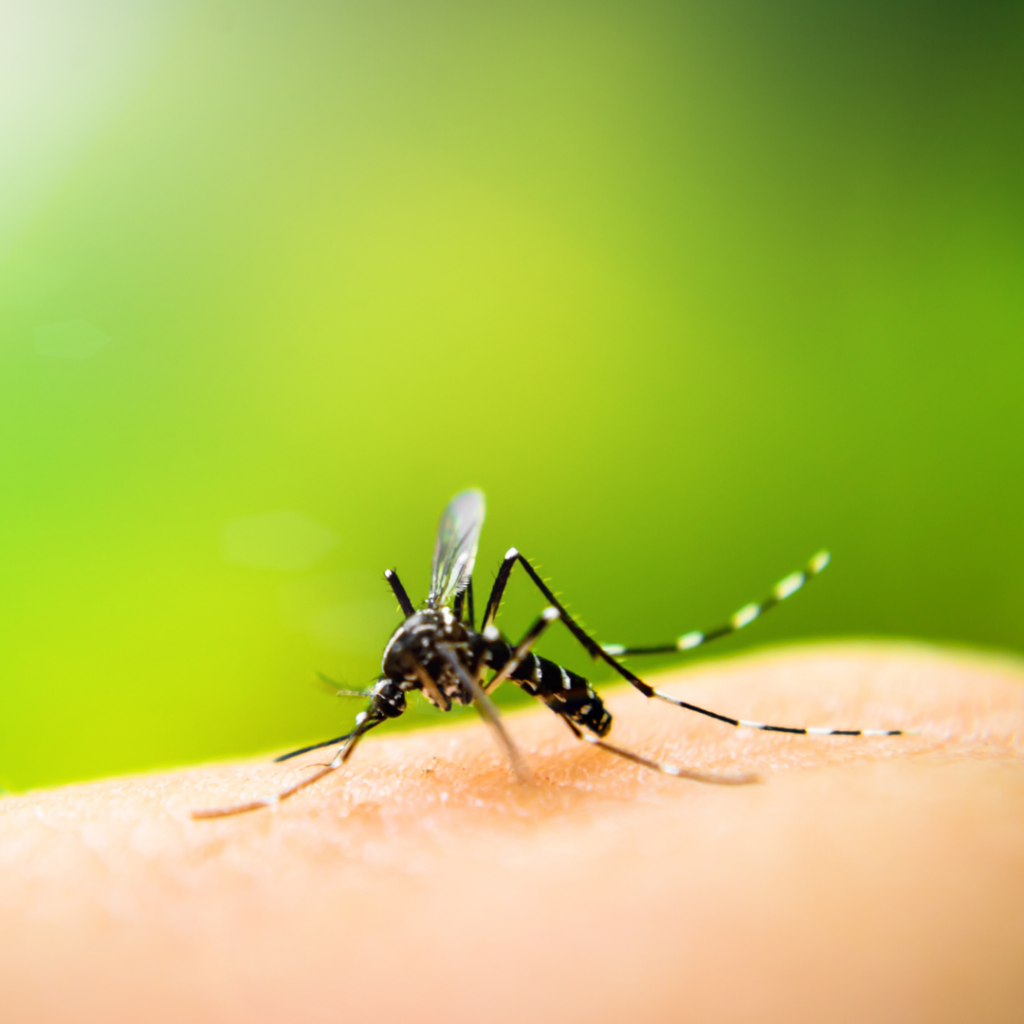With Summer approaching, it is time again for pet owners to be mindful of the fact that their pets are easy targets for mosquitos. Both dogs and cats are at risk of contracting heartworm disease from a single mosquito bite, which can have fatal consequences.

Transmission of heartworm disease takes place when your pet is bitten by a mosquito that is carrying heartworm infected larvae. The larvae enter the body of the pet through the bite wound. It takes roughly 6 to 7 months for the infective larvae to mature into adult heartworms. The adult heartworms mate and the females release their offspring into the dog’s bloodstream, completing the life cycle.
Heartworm-positive dogs may show little to no symptoms until the disease progresses to the point that the worms have developed in their lungs. At this time, your dog may begin coughing, become lethargic, lose its appetite, have difficulty breathing, or become tired after low to moderate exercise.
In heartworm-positive cats, the symptoms may include coughing, respiratory distress, and vomiting. In more serious cases, heartworm disease could result in a cat’s sudden death.
Treatment for heartworm-positive pets is expensive, can be life-threatening, and unfortunately doesn’t always result in a positive outcome.
The good news is that heartworm disease is nearly 100% preventable in pets with properly prescribed prevention! Your local Veterinary clinic can provide you with the specific oral or topical prevention that is best suited for your individual pet. Your Veterinarian will strongly suggest annual or bi-annual bloodwork to test for heartworm prior to providing the preventative medication as it will not kill existing adult heartworms. In fact, giving a heartworm preventive to a dog infected with adult heartworms could be harmful or deadly.
Remember, even pets who stay indoors are at-risk as mosquitos can easily enter your home through an open door or window. Keep your pet in good health by regularly testing for heartworm disease and staying up to date on their prevention medication. For more details talk with your Veterinarian.
Sources:
- OVC Health Sciences Centre: www.ovchsc.ca/news/heartworm-awareness-month-and-covid-19
- American Veterinary Medical Association: www.avma.org/resources/pet-owners/petcare/heartworm-disease

